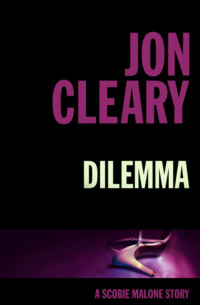
Полная версия
Mask of the Andes
One more shrug, you little bastard, and I’ll risk the firing squad. ‘I shall write today. Adios.’
Outside in the main hall again Pereira, hurrying to keep up with Taber’s long strides, said, ‘It’s his way of surviving. Why didn’t you pay him the bribe he wanted?’
‘One more remark like that and I’ll wreck you.’ Taber stopped, looked about him, blind with rage. ‘I’ll bloody wreck someone!’
Pereira backed away, hands held up in front of him; all his gestures seemed borrowed from old silent movies. ‘A man of principle! So inspiring to see—’
Suddenly Taber’s rage went, he took off his cap, scratched his head and laughed. ‘Miguel, you’re a beaut. When did you last take out a principle and look at it?’
Pereira was offended. He said nothing till they were back at the Land-Rover. ‘It is not easy to be a man of principle all the time, not when one has to survive—’
Taber felt sorry for the chubby little man; after all, his own survival was guaranteed. ‘Miguel, I’m no paragon. I’ve bent my principles so often I could have strung them together and made a hippie necklace out of them. But I like to tell myself that when I’ve bent them, no one else has suffered – at least not as far as I know. But that bastard inside there—!’ He looked back into the station, his temper rising again. ‘I’m here to help you people and I’m buggered if I’m going to pay through the nose for the privilege!’
‘You would not have to pay, Harry, not personally. Suarez will not want much, a few dollars, that’s all, a token payment—’
‘It’s just the principle of the thing with him, that what you mean?’
‘Yes,’ said Pereira eagerly; then realized he had been trapped.
Plaintively he said, ‘Harry, it has been the system for centuries. The Spanish officials started it as soon as they arrived here after Pizarro. It is a way of life. Do not the English treat the Welfare State as a way of life?’
‘Go on,’ said Taber, avoiding a touchy point.
‘Suarez is not a rich man, he has a wife and five children to support. Is not FAO’s annual budget ten to fifteen million dollars a year? A few dollars – will they be missed from petty cash?’
‘They will be by me,’ said Taber emphatically, made even sorer by the reference to the Welfare State; he was glad his father and mother had died before they had seen their ideal abused. ‘Look, Miguel, I’ve paid bribes before. But now I’m growing tired of it. If it were just to get something of my own, something personal, I might slip Suarez a few bob. But this is not for me, it’s for the campesinos you and I are supposed to be helping—’
‘Oh, I appreciate the horns of your dilemma, Harry! Oh, indeed I do. One side of me has nothing but disgust for my compatriot Suarez. But the other side—’ He shrugged; and Taber almost hit him. ‘I am a practical man, Harry. It is the only way to survive.’
‘Then we’re going to be impractical and take the risk of survival. At least as far as Suarez is concerned.’
‘The sulphur and the rest of it will stay in his sheds till he expires. Then we shall only have his successor to deal with. He will be exactly the same, Harry. A Customs man who did not take bribes would never be promoted, not in this province. It would destroy the system. So how do you propose to have the shipment cleared?’
‘I’ll think of something,’ said Taber doggedly, and succeeded in hiding his hopelessness. He had been battling graft for years, never winning even a skirmish with a corrupt official; there had been places, East Africa for instance, where there had been honest officials eager to help rather than to hinder; but he had heard with despair that the system had begun to creep in even there. He had once met an official in Brazil who boasted of his ‘honest corruption’, who set a price according to the income of the man seeking the favour and never went above it. But now Taber had reached the end of his patience. Not just with corruption, but with bureaucracy, obstruction, betrayal, even with FAO itself. He had once been a dedicated team man, but he had become a loner because the team had let him down. Bribery was part of the subscription fee as a member of the team and he was no longer going to subscribe. ‘I’ll think of something.’
He left Pereira to return to the office in the Land-Rover with the driver. Though he did not dislike the little man, he had had enough of him for the moment; Pereira could not stop talking and he would only continue the argument throughout the day that one should compromise, should accept the realities of a way of life. Taber knew the Bolivian was right, that he should not attempt to bring in here the standards of an outsider. But that did not mean he had to suffer a lecture all day long. He excused himself, saying he had to buy some personal necessities, and quickly left Pereira before the latter could protest he would accompany him. He crossed the road, narrowly avoiding being hit by a truck whose driver, one of an international breed, held to the principle that pedestrians were an expendable nuisance. He made it safely to the opposite side and dived into the crowd of Indians drifting through the big market opposite the station.
Taber always enjoyed markets anywhere in the world. It was an exposure of people’s lives; they revealed not only their wants but their character. Smithfield and Covent Garden and market day in any county town revealed more of the English character than any Gallup poll; and he believed it was the same all over the world. The bright fruits, the coloured rubble of vegetables, the rugs, the copper utensils, were only the surface kaleidoscope; the faces of the sellers and buyers were the real essence. Here even the Indians opened up their expressions, shucked off their masks and revealed the living people behind them.
He wandered through the alleys between the stalls, looking at the jumble of goods displayed. Battered pots and pans, brass ornaments that promised luck, bundles of candles, cane quena flutes, tiny guitar-like kirkinchos, sandals cut from old tyres. bowler hats, wood carvings of the Christ, the Virgin and the Sun God, take your pick, faded magazines from which Marilyn Monroe, Elvis Presley and Elizabeth Taylor smiled their empty international smiles: there was something for everyone, if everyone had money. A woman, small bowler hat sitting high on the pumpkin of her head, stopped by a stall and held out a string bag full of potatoes. The stall-owner shook his head, but the woman persisted. The man hesitated, then picked up two candles, gave them to the woman and took the potatoes. The woman went away, heading for the small church that stood on the other side of the plaza at the far end of the market. The candles would be lit and offered up for God knew what reason. The stall-owner looked at Taber, then held up the bag of potatoes. Taber smiled, shook his head and moved on. He had as little use for potatoes as he had for votive candles.
He stopped in front of a woman selling coca leaves. She sat huddled under a poncho; a baby hung in a shawl from her back like a growth. She looked up when Taber’s shadow fell across her, then looked away at once: gringos did not buy the coca leaf. A boy of about twelve, barefooted and ragged, crept along the wall of the store outside which the woman sat; he stopped by her, then held out a grimy hand in which lay some coins. The woman looked at him, then scooped some of the pale green leaves into a horn of paper, dropped some grey lime into another horn and handed them to him. The boy at once dropped down on his haunches against the wall, took some of the leaves and began to chew them.
‘What’s he doing?’
Carmel McKenna had stepped out from between two stalls. She was dressed in slacks and a suède jacket and had a pair of sunglasses pushed back on her head like a glass tiara.
‘Watch him.’
The boy took the small wet ball of leaves from his mouth, added some of the powdered lime, then popped the ball back into his mouth. He sat back against the wall, turned his face up to the sun, closed his eyes and began to chew.
‘It’s cocaine, only here they chew it instead of sniffing it. He puts the lime in it as an alkaline, to bring out the taste.’ As they watched, the boy, still with his eyes closed, tilted his head to one side and spat. ‘He’s an expert.’
‘What sort of expert?’
‘The trick is to spit out the saliva without burning your lips from the lime. He’s got it down to a fine art.’
‘But he only looks about ten or twelve!’
‘They start up here at about seven. They don’t do it for kicks. They do it as an escape from the bloody misery of their existence.’
He did not condone the habit of coca chewing, but he was abruptly angry with her. Damned outsiders.… Then he remembered the outsider’s standards he had tried to introduce over at the station. He smiled, his stern bony face suddenly made attractive. ‘I’m sorry.’
‘Why?’
‘I was angry with you.’
‘I wouldn’t have known. You look pretty sour all the time. You’d have a ghastly temper, wouldn’t you?’ He had noticed that she had all the adjectives they seemed to teach at expensive schools: ghastly was a class badge. But even as he thought it he smiled inwardly at himself: he still had a county grammar school mentality. They began to walk slowly up between the stalls, the Indians watching them with wary curiosity. ‘Why were you angry with me?’
‘I don’t know,’ he lied.
‘You’re a very difficult man, Mr Taber,’ she said, then let him off her hook. ‘Tell me more about why young kids like that boy take to cocaine so young.’
‘Well, for one thing, by chewing it they can go for days without food. That boy probably doesn’t know what a square meal looks like.’
‘He had enough money to pay for the leaves and the lime.’
‘A few cents. That’ll keep him going for two or three days. If he’d bought food with it, he’d have got enough for two or three mouthfuls.’
‘Do they become addicted to the drug?’
‘What do you think?’ he said, his voice irritable again. Christ, these outsiders lived in a cocoon; and this time he did not include himself with her as an outsider. ‘Look.’
A youth of about twenty lay sprawled against a wall. Taber took Carmel’s arm and moved her closer. The Indian’s mouth gaped open, exposing green stumps of teeth against whitish gums.
Black stains ran down from the corners of his mouth where the saliva had dribbled. His skin was yellow and there were deep purple rings round his eyes. Though he was unconscious, indeed looked dead, his pale lips occasionally quivered, like a silent appeal for help.
‘He’s a goner,’ said Taber. ‘He’ll be dead in twelve months at the outside.’
‘You don’t sound very upset,’ said Carmel, turning away, feeling suddenly cold: it was as if for the first time she had seen the skull of a living man, smelt the turned earth of his waiting grave.
‘I’ve spent twelve years among people who die every day from malnutrition. I’m still upset by it, but I have to keep it to myself. That chap won’t die from drug addiction, that’ll only be the means. He’ll die because he’s never had enough to eat, because he was born to a miserable bloody existence that no human being, in today’s world, should have to endure!’
‘You’re angry again,’ she said. ‘But this time I understand.’
‘I should hope to Christ you would,’ he said and did not apologize. ‘If you don’t, after seeing that, there’s no bloody hope for him and his people. Or for you.’
They had come out of the market into a plaza. They walked beneath a colonnade above which hung farolas, the closed-in, carved wooden balconies from old Spain. Hidalgos of past centuries had walked here, secure in their own present, careless of the future; now their descendants, old men in stiff white collars and stiff black suits, walked with the same dignity but not the same confidence. The stores along the colonnade that once had only wooden shutters now had plate-glass windows; none of the stores had any customers, as if all stocks had been sold and the store-owners had not thought it worth while reordering. Then Taber and Carmel passed a café crowded with criollo boys and girls of high school age; the place bulged with the high spirits that passed for optimism. Above the door was a carved profile of St Sebastian, chipped and smoothed by age: the patron saint of the town looked worn and dejected. Beneath the carving was an enamel sign advertising a soft drink.
‘Inca Cola?’ Carmel’s eyebrows went up in amusement.
‘The Incas never discovered the wheel, but they used clocks, guano fertilizer, they built aqueducts and bridges, they knew all about agricultural terracing and they knew how to make metal alloys. Why shouldn’t they have invented Coca-Cola?’
‘You’re putting me on. Inca Cola.’ She shook her head and they walked on. ‘I’ll bet there’s some American influence there.’ He said nothing, and she looked up at him. ‘Are you anti-American, Mr Taber?’
‘I’m not anti-anyone till people make fools of themselves.’
‘Have we made fools of ourselves down here?’
‘Sometimes. You still have to make your biggest mistake.’
‘What’s that?’
‘Turning your back on South America because it won’t develop the way Washington thinks it should. Anti-Communist, capitalistic and with preference for only American investment.’
‘Do you think we will turn our back on it?’
‘I hope not. There are some people in Washington who are at last beginning to realize that nationalism and Communism are not the same thing. There are a lot of nationalists on this continent, in this country, who have no more love for Communism than they have for your country. But unless they sing God Bless America and let American investment come in here with no strings attached, Washington wants nothing to do with them.’
‘Don’t you think our State Department knows what to do?’
‘Forgive the vulgarity, Miss McKenna, but your State Department, when it comes to South America, always reminds me of The Perfumed Garden. It has twenty-five positions on any given situation.’
She laughed so heartily that two of the passing old men turned back to look at her. ‘I don’t think that’s vulgar.’
‘I didn’t think you would. But I apologized, just in case.’
She stopped laughing. ‘Why did you think I wouldn’t think it was vulgar?’
‘Listening to you the other day. You were flat out trying to prove how broadminded you were.’
‘You’re vulgarly rude, you know that?’ She looked at him sideways, studying him hard for the first time; then she looked ahead again and nodded. ‘I was trying too hard. I always do that among strangers. You may not believe it, Mr Taber, but I’m basically a shy girl. The shy ones are always the ones who try too hard.’
They passed out of the shade of the colonnade, feeling the warmth of the sun as soon as they emerged, crossed the road and were moving into the small garden square in the centre of the plaza when they heard the shots.
Taber at once put his arm about Carmel, pulling her to him and looking wildly around. The shots had been close, too close for comfort. The small pack of bootblacks at the intersection of the paths through the square suddenly scattered, diving into the shrubs like so many shrieking birds; a flock of birds exploded out of the bushes, whistling frantically, and swept away out of sight. Half a dozen women who had been sitting on the ground at the foot of the statue of Simon Bolivar in the centre of the square flung themselves flat, their faces pressed into the mosaic tiles of the path. A small child came running towards the group and its mother screamed at it to get down; the child fell down, skidding along on its face, and for one awful moment Taber thought it had been hit. Then as he pushed Carmel down on to the path he saw the child crawl forward and disappear into the spreadeagled cluster of women as into a pile of dark rocks. A bullet smacked into a seat right beside Taber and Carmel, hit the ironwork and went ricocheting off with that whine that was both frightening and fascinating, Another bullet chipped a piece off the Great Liberator; Taber, looking up, saw that the statue was pockmarked with bullet holes. There were more shots, several yells, then suddenly there was a dull boom.
Taber raised his head and looked across the square. People were lying flat everywhere, even the old men in their stiff black suits: dignity was no protection against indiscriminate bullets. Smoke was flowering out of the doors and windows of the bank on the corner of the plaza; a man staggered out of the front door, his hands to his face, and collapsed in a sitting position on the pavement. Two cars, engines roaring, were pulling away from in front of the bank. Suddenly one of them stalled, but the other, tyres screeching, swung round the square, heading for the main street that ran out of town. Three men fell out of the stalled car and came running across the square; the second car had shuddered to a stop and was waiting for them. One of the Indian women at the foot of the statue sat up, her back to the advancing bank robbers. One of the men ran right into her, plunging over her and falling headlong. His pistol shot out of his hand, slid across the tiled path towards Taber like a challenge. He moved his head up and the gun slid in under him, clunking against his breastbone.
The bank robber, a thickset man in a black hood, scrambled to his feet and hurled himself at Taber. The latter rolled aside, away from Carmel, automatically snatching at the gun as he did so. The man aimed a kick at Taber’s head but missed as the Englishman continued rolling. Taber came up on one knee, the pistol raised; then he froze, the gun a heavy weight in the hand that could barely hold it. The other two bank robbers, both hooded, stood over him, their guns aimed directly at his head. He drew a deep breath, then tossed the gun at the feet of its owner. The man picked it up, growled something that was muffled by the hood; then the three men, in answer to the urgent hooting of the horn of the car waiting for them, went running across the square. As they ran one of the men snatched some leaflets from his pocket and hurled them into the air. A gust of wind caught the leaflets and some of them were still floating across the gardens as the running men jumped into the car and it went roaring off out of the plaza.
Taber stood up, crossed quickly to Carmel and helped her to her feet. She was struggling to get her breath, her pale face turning slightly blue. Taber pushed her down on to the nearby seat, took a tablet from a tin in his pocket and forced it between her lips. ‘Take this, it’ll slow down your pulse. I’ll try and get you some oxygen. There’s a hotel over there – they’d have a cylinder—’
She clutched his arm, shook her head. ‘Don’t – leave – me!’
He looked around. The old men were getting painfully and awkwardly to their feet, dusting themselves off and looking bewilderedly around as if searching for lost dignity: the Indian women were moving in a tight group across to join the growing crowd outside the bank. Three policemen, each blowing his whistle in a loud cheep of authority, came running from different directions; a truck, horn blowing, came lurching round the plaza, pulled up in front of the bank and disgorged a dozen soldiers. People were appearing from everywhere, but now, with the arrival of the soldiers, the small crowd outside the bank began to disintegrate. The group of Indian women suddenly about-turned and trotted back to sit once more at the foot of the statue of the Liberator. The old men stood in their own group across at the bank; an image sprang into Taber’s mind of photos he had seen of delegates to international conferences in the thirties, formally dressed old men with tight worried faces who saw the coming of the end of their world. The high school students had come out of the café, chattering among themselves but, unlike teenagers Taber had seen elsewhere, minding their own business and making no attempt to move down towards the bank. People, criollos and Indians, lined the edges of the plaza or stayed stiffly where they were in the gardens; but no one made a move towards the bank now that the soldiers had arrived. The clerk who had staggered out of the bank still sat on the pavement, swaying back and forth, holding his face; against the wall of the bank Taber saw for the first time the crumpled body of a policeman. A car, siren wailing, came into the plaza and juddered to a sharp stop behind the military truck. Three officers got out and hurried into the bank.
Taber helped Carmel to her feet, putting his arm round her. Something blew against his feet; it was one of the leaflets tossed away by the bank robbers. He picked it up, held it crushed in his hand as he began to help the still gasping Carmel across the square.
‘My hotel’s not far from here. They’ll have an oxygen cylinder.’
They walked slowly, she leaning on him like an old woman. People watched them curiously, but no one stepped forward to ask if they could help. Carmel was still fighting for her breath, but Taber, his arm round her, could feel the gasping slowly subsiding.
It was perhaps three hundred yards to Taber’s hotel but it took them almost ten minutes to reach it. It was a ten-year-old concrete building that looked uncomfortably out of place among its old stone, tile-roofed neighbours; even its name, the Dorchester, was a brash piece of bravado that had not quite come off: the two middle letters of the neon sign did not work. It was owned and run by a Bulgarian and his wife and was, Pereira had assured Taber, absolutely the best hostelry in town.
Taber helped Carmel up the steps into the small lobby, sat her down on one of the bright yellow plastic-upholstered couches against the bright blue wall. The owner, a stout bald-headed man with gold-rimmed glasses and an air of being constantly harassed, came across from behind the desk with a small cylinder of oxygen.
‘The altitude, senor? Or excitement – I heard the shots—?’
‘Both,’ said Taber, watching to see that Carmel did not gulp in too much of the oxygen. He took the face-piece away from her and handed the cylinder back to the owner. ‘That’s enough. The senorita will be all right now. Will you get me a taxi?’
The hotel owner turned to call the Indian boy out from behind the desk, but stopped as the front door swung open and a police officer came in. The officer walked straight up to Taber and held out his hand.
‘The leaflet, senor.’ He was a short, thin-faced mestizo in his late forties, a man drugged by addiction to authority; he quivered now as if he were high on it, his eyes wide as he glared at Taber. ‘Hand it over at once.’
Taber looked down, saw that he still held crumpled in his hand the leaflet he had picked up in the plaza. He smoothed out the paper, held it up to read it. The officer made a grab at it, but Taber jerked it away. He was aware of the tension in the lobby, of the Indian boy half-crouched behind the desk and the owner holding the oxygen cylinder in front of him like a bomb he did not want; out of the corner of his eye he saw Carmel gasping no longer but now holding her breath, and beyond her he was aware of the owner’s angular wife standing unmoving in the doorway to the office. But he was not going to allow himself to be pushed around like some misbehaving tourist by this arrogant little policeman. He was here at the invitation of the government and the police had better get the message right at the start.
He read the leaflet: Death to the Jackboot! The People’s Revolutionary Committee … There was more in the same strain; he had read it all before, in three or four other languages. This one was in Spanish and Quechua; he wondered which language would get the greater response. He screwed up the leaflet and handed it to the officer.
‘It is an offence against the law to have such literature.’
‘You flatter it calling it literature. I picked it up in the plaza. I was just helping to keep the city clean.’
The police officer evidently did not appreciate irony. ‘You gave a gun to one of the terrorists.’









